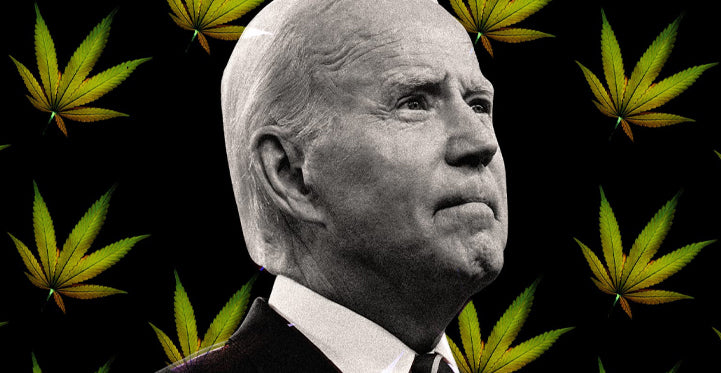The Department of Health and Human Services has concluded that marijuana is comparatively less harmful than certain dangerous drugs, with some evidence supporting its medical benefits. In a 252-page review released on Friday, the Food and Drug Administration's reasoning for recommending a relaxation of federal restrictions on marijuana is outlined. The review acknowledges credible scientific support for the medical use of marijuana in at least one of the widely experienced indications in the United States.
This marks a significant shift in the federal government's perspective on cannabis, which has been classified as a Schedule I drug, alongside heroin, for over 60 years. President Joe Biden had requested this review through an executive order in October 2022, directing HHS to assess all available research on cannabis. The documents confirm HHS's recommendation to move marijuana to Schedule III. However, the final decision rests with the Drug Enforcement Administration, expected in the coming months.
The release of these documents is a result of a lawsuit by cannabis lawyers Matt Zorn and Shane Pennington, published on their blog On Drugs. Despite cannabis legalization spreading rapidly across the country, the federal review considered eight scientific criteria, including potential for abuse and current scientific knowledge.
The FDA evaluated marijuana's effectiveness in seven medical conditions, finding mixed findings but acknowledging the largest evidence base for pain indication, particularly neuropathic pain. Contrary to its Schedule I classification, the review counters the belief that marijuana lacks medical use.
Furthermore, the FDA determined that marijuana poses a lower public health risk and potential for abuse compared to other scheduled drugs. Despite substance use disorder admissions in 2020, the risk was found to be much lower than drugs like heroin and cocaine. Cannabis use disorder, defined as psychological dependence, ranged from 10 to 20 percent, lower than tobacco, opiates, and alcohol.
While 40 to 50 percent of regular marijuana users may experience physical dependence, the FDA concluded that symptoms are mild. In terms of adverse consequences, marijuana ranked lower than alcohol, heroin, and cocaine, especially in serious medical outcomes like death. The review emphasizes that, although marijuana abuse has harmful consequences, they are less common and less severe than those associated with some comparator drugs.



Laat een reactie achter
Deze site wordt beschermd door hCaptcha en het privacybeleid en de servicevoorwaarden van hCaptcha zijn van toepassing.